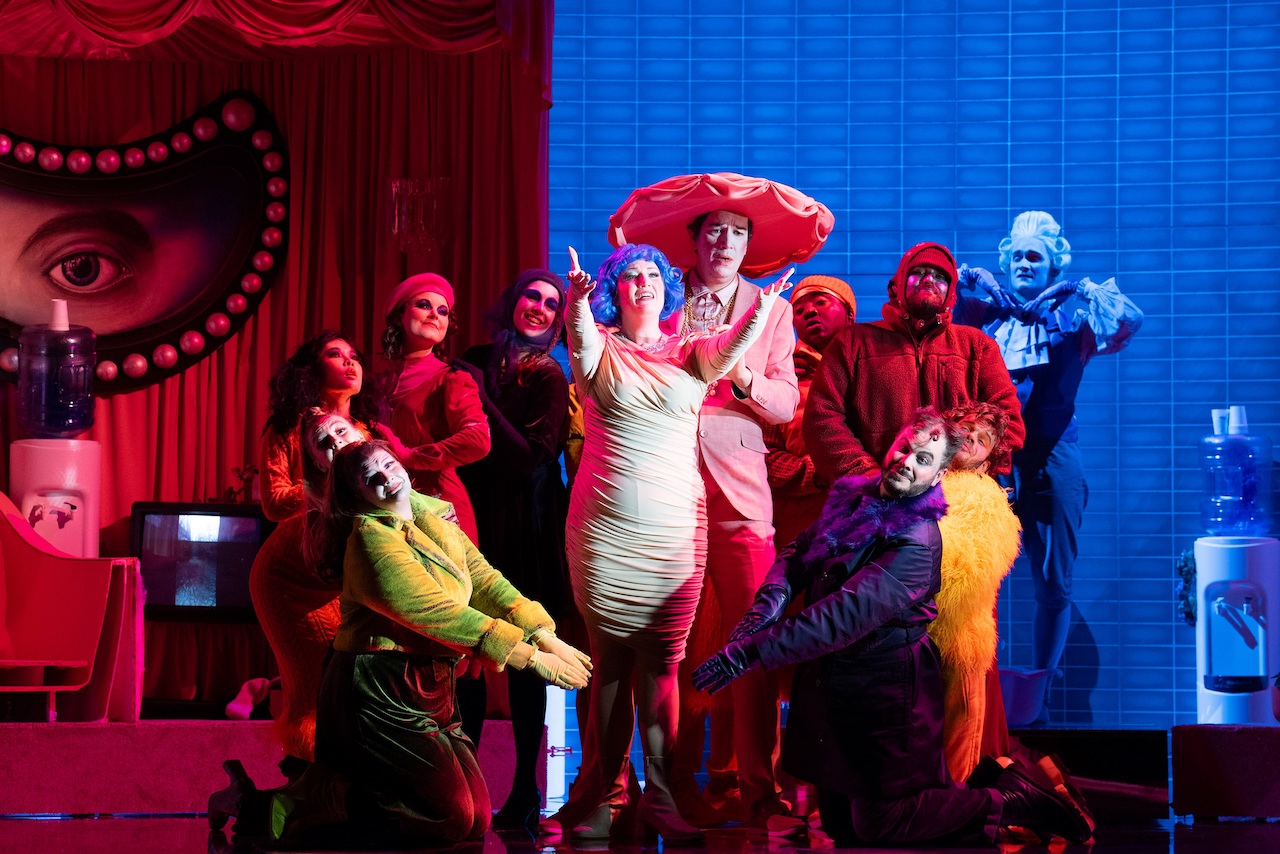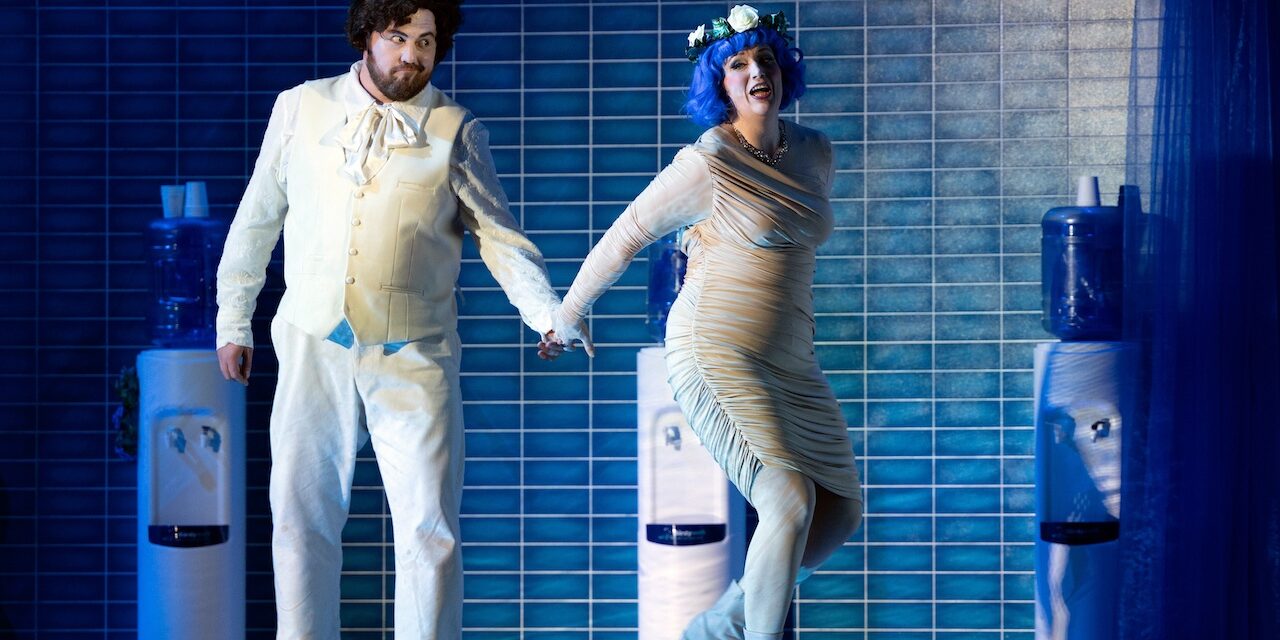
27 May
Based upon the 1731 novel by Abbé Prevost, Puccini’s Manon Lescaut is the tragic tale of a woman who becomes the victim both of a misogynistic society and of her own conflicted desires. The original libretto was cobbled together by no less than five librettists plus Puccini himself and his publisher, Giulio Ricordi, and unsurprisingly the result is a little lacking in cohesion. One or two elements of the opera lack conviction, particularly in the final act, which is set somewhat oddly in a desert in Louisiana. English National Opera’s director Jude Christian has focused upon these improbabilities, finding that the whole opera reads ‘like a surreal nightmare, and so that’s how I’ve chosen to stage it.’ In declaring her intention to create a nightmare, it might be thought that she was offering a hostage to fortune.
From the very start the surreal elements of this production threaten to overwhelm the core narrative. The Paris square of the original story has become a strange, blue-tiled location equipped with water coolers and a stuffed dummy under a sunshade. (Are we at the bottom of a swimming pool?). The ardent young Des Grieux (Gareth Dafydd Morris) arrives there on the back of a dolphin and his romantic inclinations are not teased by fellow students, but by a bizarre parade of comically choreographed grotesques. Manon herself (Jenny Stafford), supposedly being carted off to a convent by her mercenary brother, wears a strange blue wig and is wrapped in a figure-hugging white dress that threatens to hobble her. This may intend to symbolise her entrapment, but elsewhere any symbolic meanings are hard to discern. For example, why has Geronte (Edward Hawkins), the elderly and wealthy Treasurer General who becomes Manon’s ‘protector’, been recast as a camp vision in a pink suit, topped by the kind of hat that any Pantomime Dame would envy? All these incongruities are distracting, as are the many lead-footed phrases in Christian’s updated libretto. ‘You kids are crazy!’ is a typically clunky example.
It is not at all surprising that a director with a feminist agenda should be tempted to cast a critical eye over the misogynist elements of this story, but in the first two acts of this production so much emphasis is given to nightmarish unreality that there is a very real danger of losing any emotional connection with the central characters.
By the interval one is left decidedly befuddled by all the surreal goings-on. However, despite all the garish nonsense, the music is a joy. All the main roles are sung superbly well. In defiance of his daft costume, Edward Hawkins’ richly resonant voice does much to bring a degree of gravitas to the role of Geronte. Gareth Dafydd Morris is entirely convincing as the passionate risk-taking Des Grieux, while Aidan Edwards vividly depicts Manon’s brother as a ruthless wheeler and dealer, treating his sister as little more than an attractive parcel of negotiable goods. Jenny Stafford’s anguished Manon is seen to be torn between carnal and material impulses, equally seduced both by De Grieux’s charms and by Geronte’s wealth.
In the second half the brash weirdness is toned down somewhat. The colour palette is more subdued and the stage is less cluttered by peculiar props and silly business. Yet even in the final desert scene, where one’s focus of attention should surely be upon Manon, near death and reflecting on how cruel life has been, Jude Christian has not been able to resist the temptation to undermine the solemnity with a final piece of ill-judged silliness. Manon’s last moments are watched over not just by a grieving Des Grieux, but by an enormous dog’s head. It seems a crassly inappropriate and unnecessary addition, and it is no small tribute to the acting and singing skills of Jenny Stafford and of Gareth Dafydd Morris that they nevertheless succeed in bringing the opera to an emotionally powerful conclusion.
★★★☆☆ Mike Whitton, 28 May 2024
Photo credit: Richard Hubert Smith


